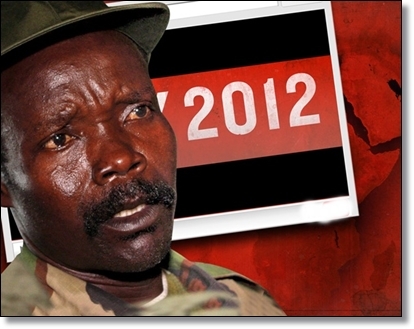Kony 2012: What Should US Do?

 |
While there's been a great deal of controversy regarding the video, one fact is indisputable: more people now know about the horrors endured by the people of Uganda than ever before.
The Society of Jesus, the largest religious order of Roman Catholic priests and brothers in the world, has worked in Uganda for more than 40 years. The Society's Jesuit Refugee Service (JRS) has conducted peace-building workshops, run schools and economic development projects and ministered to refugees in Uganda. Its co-educational high school that admitted its first students in early 2010 is already having a positive impact in a region devastated by over twenty years of civil war.
Reacting to Obama’s bid to deploy U.S. military personnel to the region to help fight the LRA, Father Agbonkhianmeghe E. Orobator, the Jesuit provincial of Eastern Africa suggests that the U.S. government can help Uganda's people - "by sending teachers, doctors, engineers, experts in agriculture and development - not more soldiers, guns and ammunition."
According to Fr. Orobator, while the LRA has killed, mutilated, abducted and raped thousands of women, men and children in northern Uganda, things are different today. On the very spot where Joseph Kony and his criminal gang used to barbeque beef of cows that they stole from the people, and on the bush path that the LRA used to mount their deadly attacks, a school has been built. Where once death and violence decimated the lives of Ugandans, a new dawn is rising and children can learn to build a better future. Children in northern Uganda no longer train for war; they are training for a better, bigger and brighter future - full of hope and promise.
“This is where the U.S. government and the rest of the world can help Africa - to train African children, not for war, but for peace, prosperity, and progress! The U.S. government can help African children beat swords and guns into pens and pixels; notebooks and textbooks; iPads and TouchPads,” observes Fr Orobator.
According to him, “The biggest threat to life in DR Congo, Uganda, South Sudan, Central African Republic and in so many parts of Africa is not the LRA; what destroys life in Africa are diseases, poverty, illiteracy, corruption, child mortality, maternal death, religious intolerance, lack of political freedoms and limited economic opportunities. This is where the U.S. government, policy makers and the international community can help Africa and the children of Africa: by sending teachers, doctors, engineers, experts in agriculture and development - not more soldiers, guns and ammunition. In Africa we want to forge a new path of reconciliation, justice and peace."
Fr. Orobator's comments are in agreement with the position of the Acholi Religious Leaders Peace Initiative, which includes Archbishop Odama of Gulu, and also urges non-violence rather than U.S. military intervention as a solution.
The Acholi Religious Leaders’ Peace Initiative (ARLPI), is concerned with Washington’s manner of intervention and hold that it can backfire. They observe that over the past two decades, the people of Northern Uganda have endured horrific violence as a result of the war between the LRA and the Government of Uganda (GoU). Despite numerous attempts at resolving this dispute, to date, these measures have not only failed to result in the hoped for peace but led instead to the broadening of the conflict to neighboring countries.
In response to the White House, they say:
“We would first like to reiterate our sincere appreciation to President Obama and the American Congress for your attention to the plight of our people. We are thankful for your desire for peace and justice in the world. Your efforts to achieve reconciliation and meet humanitarian needs in LRA affected regions cannot be understated and loudly communicates that we are not forgotten.
We also, however, feel the need to express our concern over the military nature of the current strategy. As history has taught us, military intervention is not the way to resolve the LRA conflict and achieve a sustainable peace. In the past, such approaches have directly resulted in the intensification of LRA violence and the increased endangerment of civilians.
While many have lost hope in any peaceful resolution to the conflict, the reality is that the peace process, in particular the Juba peace talks which began in 2006, is responsible for the relative calm being experienced in northern Uganda today. We, therefore, strongly implore all concerned parties to prioritize and creatively explore non-violent means to resolve the conflict. Instead of relying on military intervention, let us redouble our efforts to engage in dialogue. We believe this is the only way to bring about a lasting solution that will foster healing and reconciliation in a region of the world that has long experienced instability and deserves peace.
We strongly urge all participating entities to enter into and remain in consultations with regional CSO’s, NGO’s, grassroots leaders and their communities about the best ways forward to bring an end to one of the world’s longest running conflicts. We also ask policy makers in the United States, Africa and elsewhere to heed the lessons of history and focus their efforts on dialogue rather than force, engagement rather than confrontation. We sincerely believe that this is the only way that the LRA will be brought to an end, a sustainable peace will be reached, and the clouds of violence and chaos that have darkened our region for so long be dissipated.”
Courtesy: Jesuit Refugee Service & Acholi Religious Leaders’ Peace Initiative.
